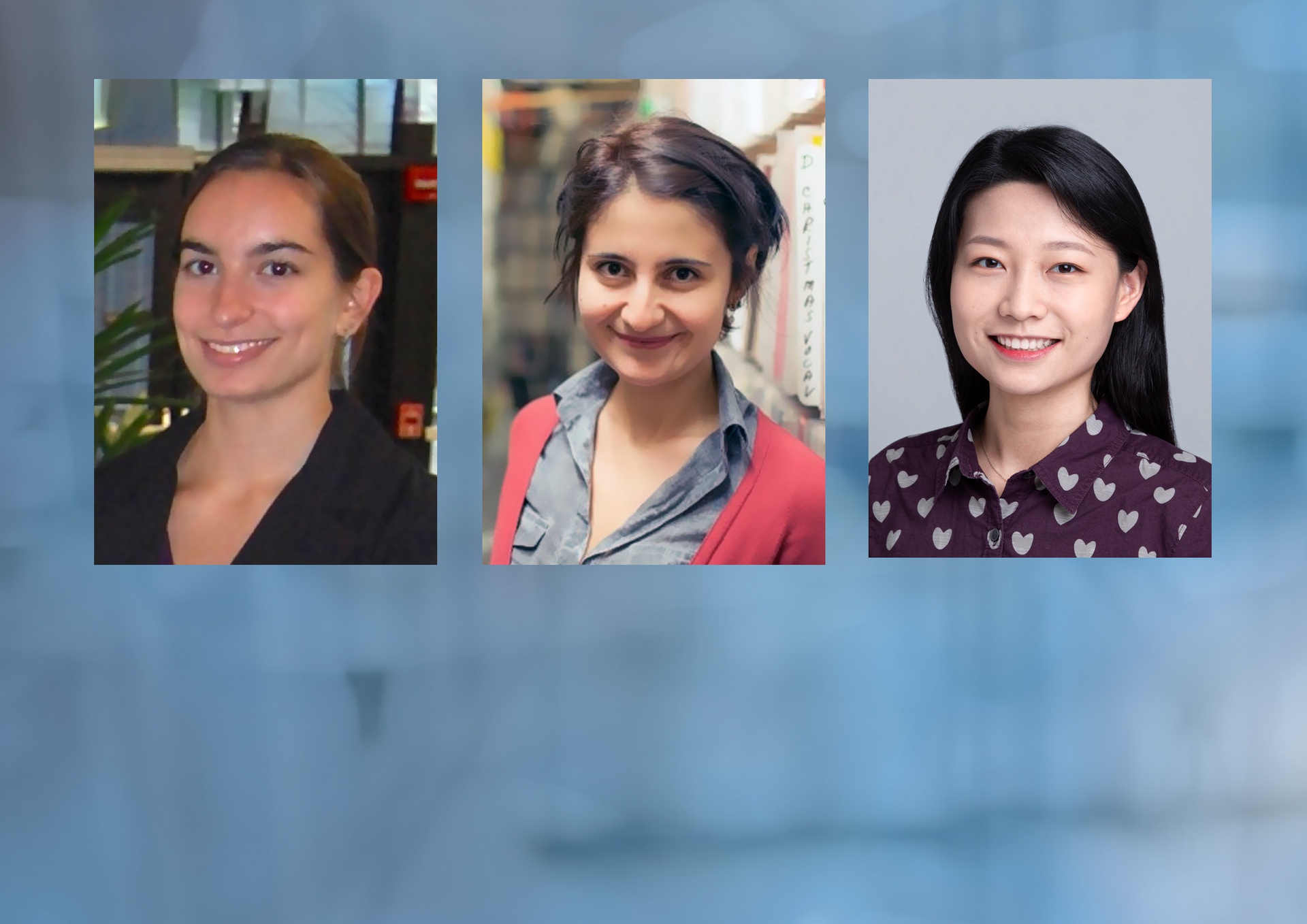Three Women Will Join the Electrical and Computer Engineering Faculty in Fall 2020
PITTSBURGH (July 20, 2020) … The University of Pittsburgh Department of Electrical and Computer Engineering (ECE) will welcome Drs. Kara Bocan, Azime Can-Cimino, and Peipei Zhou as assistant professors, starting September 1, 2020.
“My ECE colleagues and I are thrilled to have these outstanding new professors join our faculty,” said Alan George, Department Chair and R&H Mickle Endowed Chair of Electrical and Computer Engineering. “Azime’s experience in industry and gift for working with students will be a major asset, and Kara is an innovative teacher with a wealth of ideas to improve our courses and programs. Peipei will boost our research efforts with her expertise in field-programmable gate arrays, which is a field of growing prominence and a growing need in our department.”
The appointment of these three faculty members will also help narrow the gender gap in a field that struggles to hold a female presence.
Though the number of women earning engineering degrees has increased in the past decade, there are still proportionally far fewer women than men studying engineering and an even lower proportion of female engineering faculty. According to a 2018 study from the American Society for Engineering Education, on average, women only make up about 17 percent of tenured and tenure-track engineering faculty.
“These three appointments will double the number of full-time female faculty in our department, help us to more strongly support our present undergraduate and graduate students, and help us to attract in future an even larger and broader range of promising students,” George added. “Peipei, Azime, and Kara are outstanding engineers, and they will significantly enhance both teaching and research in the Swanson School of Engineering.”
Kara Bocan, PhD
Bocan received her PhD in electrical engineering from the University of Pittsburgh in 2017, where she also received her BSE in electrical engineering and bioengineering with a minor in neuroscience in 2012. She performed her dissertation research on wireless implantable medical devices with the RFID Center of Excellence, where her use of computer-aided design was an entry point to the field of computational modeling. More recently, her research has focused on the use of computational modeling to enhance understanding of complex systems, and on the development of effective and usable modeling software.
She has taught courses part-time as a visiting research assistant professor for the Swanson School’s Department of Electrical and Computer Engineering since Fall 2018, focusing on active learning and student engagement through interactive examples and open-ended engineering questions. Her teaching interests include blended learning, flipped classrooms, gameful design, technology ethics, and accessibility.
Azime Can-Cimino, PhD
Can-Cimino received a BS and MS degree in electrical and electronics engineering from the University of Istanbul, Istanbul, Turkey, and a PhD degree in electrical engineering from the University of Pittsburgh. Prior to Pitt, she worked as a senior software engineer at Emerson Automations Solutions development team, where among other things, she developed AI algorithms for the power and water industry. Her research interests are in machine learning, optimization, and statistics. She has also contributed to other areas including sampling (signal processing), wavelets and compressive sensing.
Zhou received her PhD in computer science in August 2019 from the University of California, Los Angeles, where she also received an MS in electrical and computer engineering in June 2014. Her undergraduate studies were in electrical engineering at Chien-Shiung Wu Honors College, Southeast University, China. She is currently a research scientist at Shanghai Enflame Technology, an AI chip start-up with a research focus on domain-specific language and compiler for AI ASIC Accelerator and computer architecture modeling and system optimization with autotuning.
Zhou's research interests lie in design automation and compilers as well as modeling and optimization for customized, parallel and distributed computing at multiple levels, including chip-level, node-level and cluster-level. Her research advances field-programmable gate array-based reconfigurable architecture from a performance, energy and cost perspective for deep learning, precision medicine and other big data and machine learning applications.
# # #
Contact: Leah Russell

